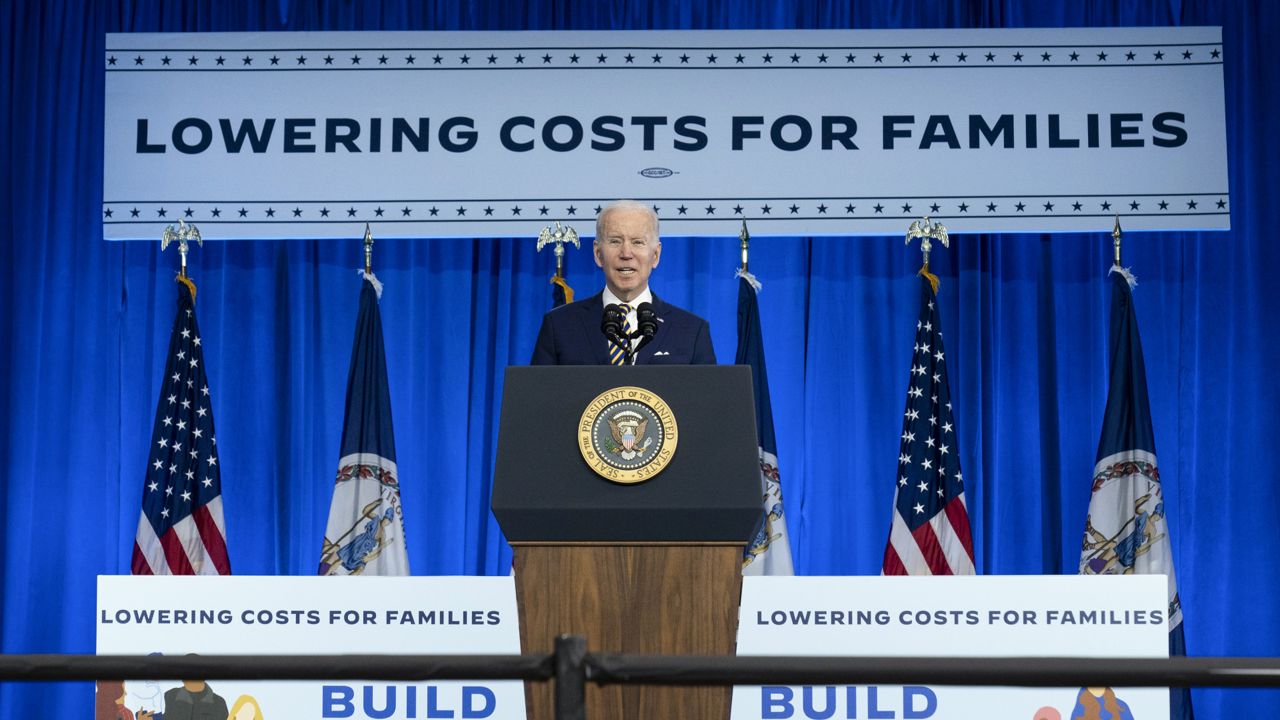President Joe Biden on Thursday called on Congress to take further action to address the skyrocketing prices of prescription drugs across the country, saying it is far past time to “ease the burden on working families.”
The president was introduced by Shannon Davis and her 12-year-old son, Joshua Davis, who at 11 months old was diagnosed with Type 1 diabetes.
“I have to be careful with my bottles of insulin because they can break very easily and, well, I am a 12-year-old boy,” Joshua said to laughter, adding: “I'm thankful that insulin was invented because it is my life support. I don’t have a choice whether or not to use it.”
Shannon Davis, whose husband is also diabetic, detailed the exorbitant expenses her family faces each year just to stay alive.
“Even with insurance, we currently spend between six and seven thousand dollars a year,” she said in part. “That is just our insulin cost. This does not include the insulin pump supplies, emergency glucagon, monitoring or test strips.”
Biden subsequently told the Davis family that “lowering the cost of prescription drugs is important and giving families like yours just a little bit more breathing room makes a gigantic difference.”
Insulin typically costs ten times more in the United States than in any other developed country, according to the Mayo Clinic.
The price of analog insulin — used to help the body convert glucose into energy — has skyrocketed “inexplicably” over the past two decades, the clinic says, shooting up from an average price of $21 in 1999 to $332 in 2019.
The formula of the most commonly used versions of the drug have not been changed in over 20 years.
“In America, we pay the highest prescription drug prices of any nation – developed nation – in the world,” Biden said Thursday. “Everyone has less money in their pockets today because of high drug prices, drug costs and health insurance and it's more expensive for everyone.”
According to a 2019 Kaiser Family Foundation study, 24% of adults and 23% of seniors said it was “difficult” for them to afford their prescription medication. The same poll found that 79% of Americans say the cost of drugs is “unreasonable” in the United States.
“Others have simply not filled prescriptions that the doctor had given, tried to use over-the-counter drugs or pills cut in half, because they can’t afford the cost of the prescription,” Biden said. “This is the United States of America, for God's sake. That's just wrong. It's simply wrong.”
Biden’s proposed social spending and climate-focused package, dubbed the “Build Back Better bill,” would make a number of changes to the prescription drug market in the U.S., in part by imposing a $35 monthly cap on the cost of insulin.
Companies that increase prescription drug prices faster than the pace of inflation would face a steep excise tax under Biden’s proposal.
Biden’s bill would also allow Medicare to negotiate the price of prescription drugs directly with pharmaceutical companies with the hope of reducing costs for millions of Americans. Currently, Medicare can negotiate lower prices on nearly every medical item except for prescription drugs.
Another change to the Medicare system would impact seniors by capping the amount they have to pay on prescription drugs at $2,000 per year.
The nearly $2 trillion bill passed the House in November, but faces an uncertain – if near impossible – uphill battle in the evenly-divided Senate.
Biden in early December said he wanted to get the bill signed “no matter how long it takes,” but the administration recently acknowledged the package might have to be split into smaller chunks in order to pass.
"I think we can break the package up, get as much as we can now and come back and fight for the rest later," the president said during a late-January press conference.
Key holdouts on the legislation – specifically, Sen. Joe Manchin, D-W.V. – have indicated that they are open to negotiation on portions of the bill that fund climate and energy initiatives, but balked at some of the larger social spending inclusions.
Biden on Thursday appeared optimistic that lowering prescription drug costs is a topic both parties can agree on, saying: “Diabetes, Alzheimer's, cancer – they’re not partisan issues, they're not Democrat or Republican. This is about whether or not you and your loved ones can afford the health care you need and the medicines you need to stay healthy.”



